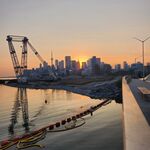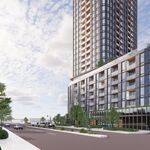CDL.TO
Moderator
Someone correct me if I'm wrong, but don't all of the 905 transit systems now use time-based transfers?
I can't blame anyone for not wanting to suffer through the subway experience in Toronto anymore. As a long time subway rider, the delays, overcrowding, and insufficient air conditioning have really started to wear on me so now I take one of the downtown express buses to work and pay a premium for it. The ride is faster, smoother, and much more comfortable than the subway. It's a more direct route for me too. I realize there's an extra cost to express buses, which discourages their use, but it's still much cheaper than driving and just as fast.
Using public money to build more subway lines (including perhaps express lines underneath existing subway lines) would help make public transit more attractive and take some commuters out of their cars, thus reducing car commuting times too. If that's not in the cards, then perhaps more premium downtown express bus routes would help alleviate some subway congestion as a temporarily solution. The Yonge line definitely feels much slower now than it did 10 years ago.
Unfortunately too many voters are unable to see past the "I don't use public transit so I won't pay for it" mentality. I suspect we will have to wait for a much younger generation of politicians to come to power at all levels of government before there's a substantial change for Toronto.
They've supported the Conservatives for what ... 3 elections in a row?The Globe is right wing?
The Star attacks both the Conservatives and the NDP, and they tend to support the Liberals. Surely that is centrist compared to the Globe.I'd say they're the most centrist newspaper out here. Try comparing them to the Sun or the Star to get a vague idea of what centrism means.
The subway system is great for shorter range rapid transit but for those in the far reaches of Scarborough they not only have to deal with that transfer but sit through endless stops on the BD line to get downtown and transfer again.
In addition to a DRL we should have a Toronto Overground in some of the rail corridors for express intercity services and would allow travelers from the east to bypass using the subway altogether.
You are allowed to that. TTC Times Two with GO Transit.It would be better if one could transfer from the TTC to the GO train and then transfer back to the TTC to complete the journey at either the same GO fare or a reduced combined fare.
Every system in the GTA except the TTC and DRT.Someone correct me if I'm wrong, but don't all of the 905 transit systems now use time-based transfers?
They've supported the Conservatives for what ... 3 elections in a row?
The Star attacks both the Conservatives and the NDP, and they tend to support the Liberals. Surely that is centrist compared to the Globe.
I think it's a chicken and egg thing. Many people don't use transit because the service level is so poor. As a result, not very many people see it as needed. If the service becomes better, more people will use it, and then more people will see how valuable it is.
Precisely ... the Star typically supports the Liberals, but this time they supported Layton - the best candidate of the bunch, thus showing centrism.They supported the best candidate of the bunch... I think that shows centrism.





